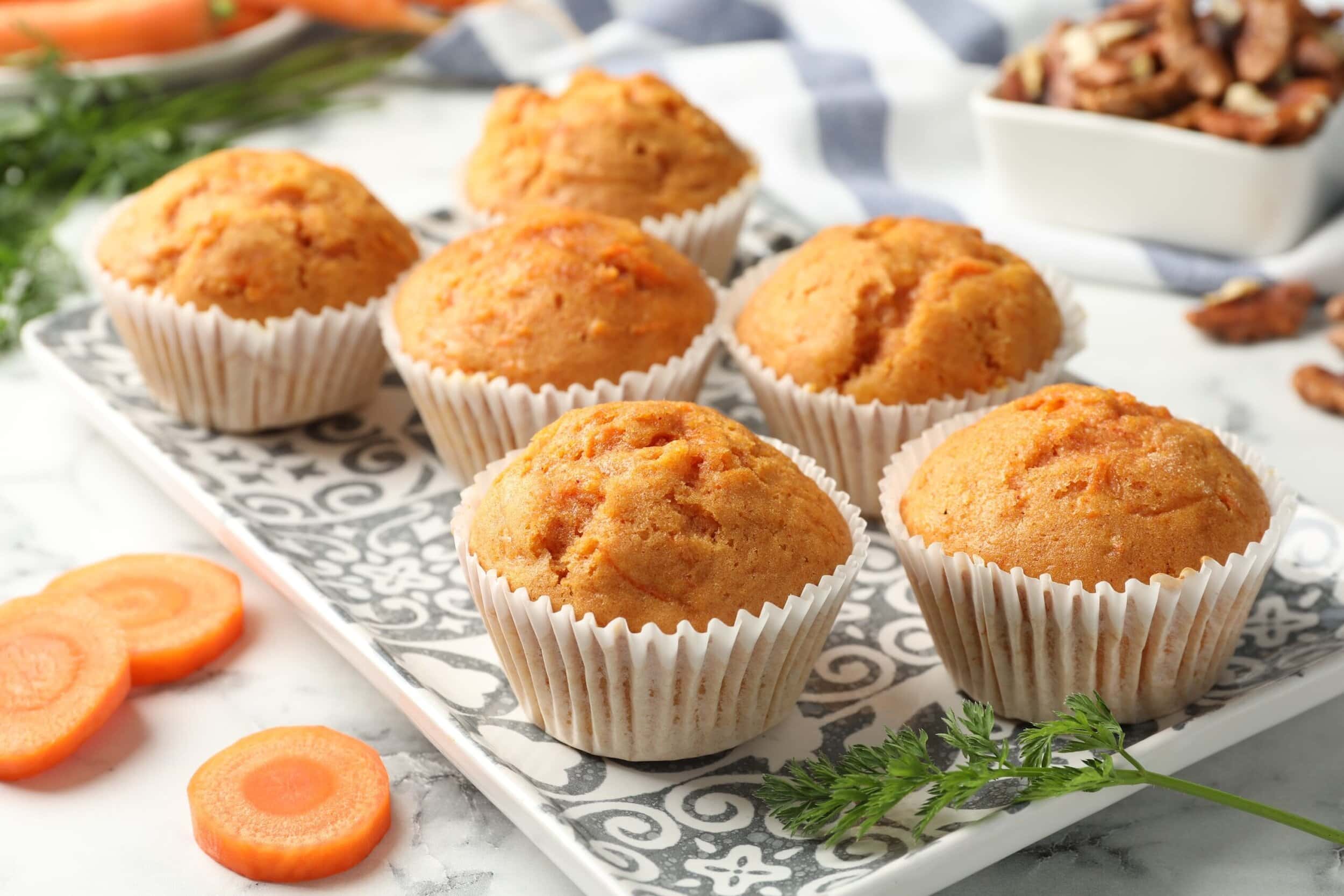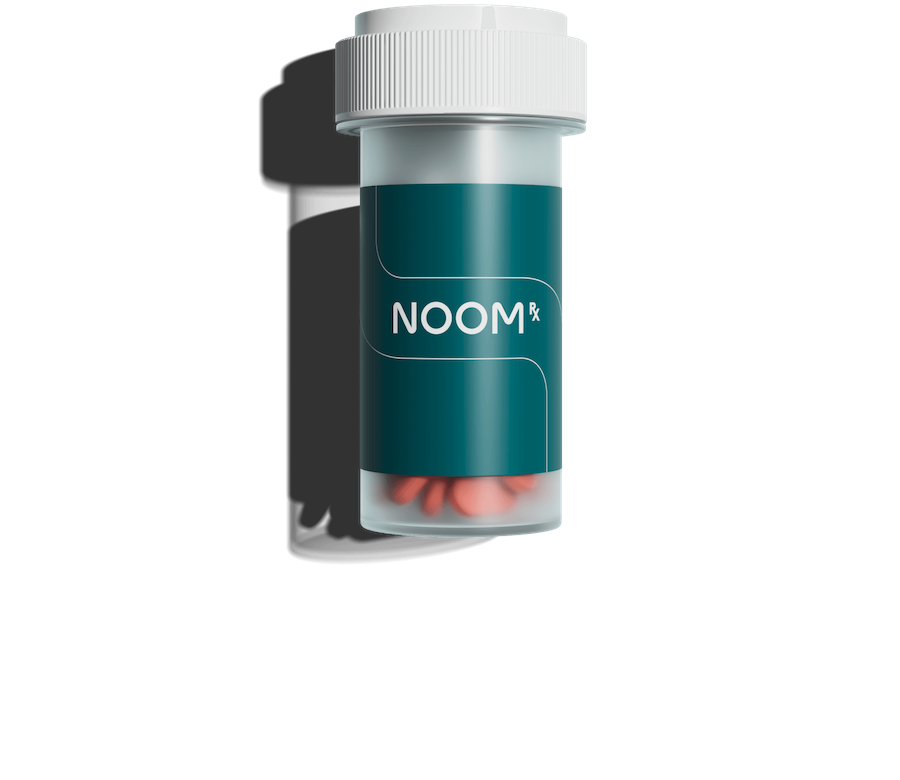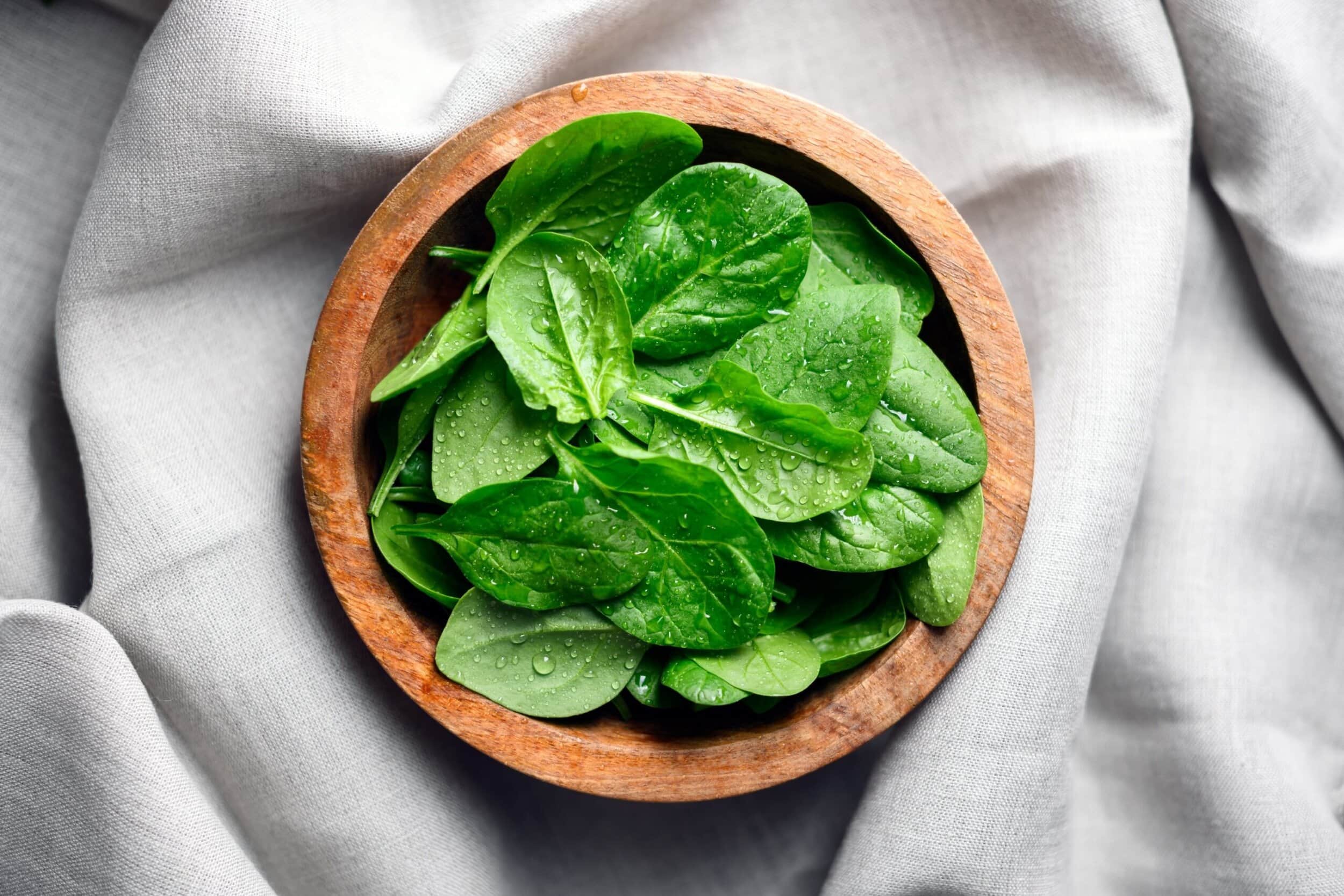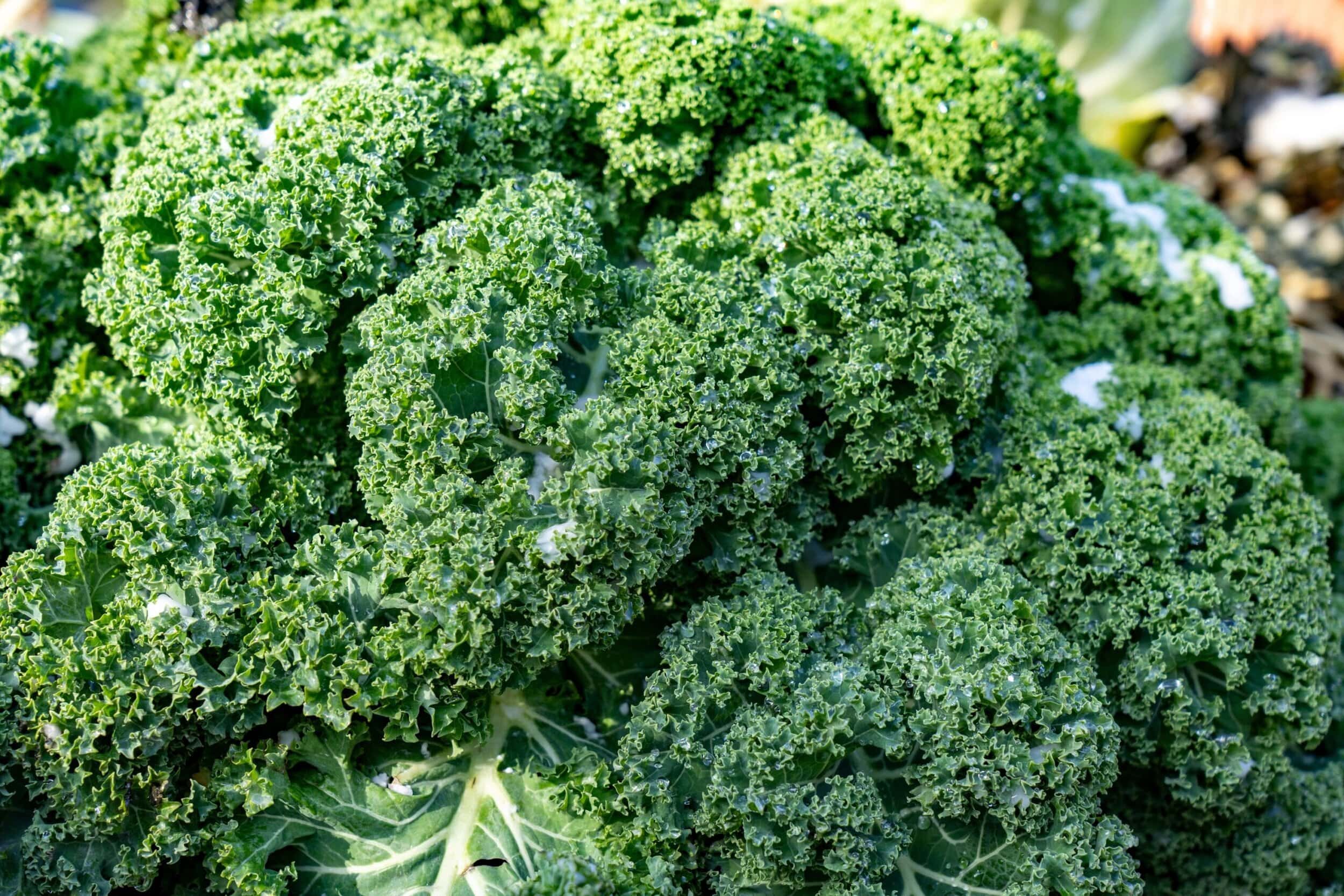Eyeing that fluffy blueberry muffin in the café case and wondering if it fits into your plan? Muffins are one of America’s favorite grab-and-go breakfasts—but when it comes to weight loss, they can be tricky. At Noom, no foods are off-limits—what matters is your overall eating pattern and maintaining a calorie deficit.
And here’s the thing about muffins: size really matters. A petite, homemade bran muffin made with whole grains is a very different choice from the jumbo chocolate chip muffin at your local coffee shop. Both can “fit,” but large, commercially prepared muffins make it harder to stay in a calorie deficit thanks to their high calorie and sugar content. Surprisingly, even an egg and bacon sandwich, a bagel with cream cheese, or a croissant might be a better calorie trade-off.
We’ll look at what’s really inside muffins by comparing three common sizes and different types. You’ll see how portion size drives calories, why many store-bought versions work against satiety, and how to make (and pair) muffins so they align with your goals.
✅ Quick answer
You can absolutely enjoy muffins while working toward your goals—but it’s important to keep calories in mind. The average medium muffin contains 350 to 450 calories, along with plenty of refined flour and added sugar, which can cause blood sugar spikes, energy crashes, and renewed hunger soon after eating. Choosing a smaller, homemade version made with whole grains and real fruit makes it much easier to fit into your calorie budget.
🚀 Weight-loss benefits
- They’re a quick energy boost – A small muffin can be a handy, portable option for busy mornings or pre-workout fuel. When it’s made with whole grains and real fruit, it provides more steady energy than refined-flour versions—just remember it won’t keep you full quite as long as a protein-rich breakfast.
- They can offer some nutrition perks – Muffins made with fruit or bran bring a little extra fiber, vitamin C, and antioxidants to your day. These nutrients support overall health and may help reduce inflammation. The key is sticking with real ingredients, since artificial flavors and large portions can tip the balance.
- They’re easy to make work for you – The best part about muffins is how customizable they are at home. You can use whole-wheat or oat flour, cut back on added sugar, and add protein powder or Greek yogurt for staying power. Mix in nutrient-dense extras like flaxseed, chia, or fresh fruit, and you’ve turned a simple baked good into something that fits comfortably within your goals
⚠️ Things to be mindful of
- Size really matters – A small, 2.5-ounce homemade blueberry muffin might come in around 200 calories, while a jumbo 6-ounce bakery muffin can hit 650 or more—that’s roughly the same as a full meal. It’s easy to underestimate muffins because they look like a snack, but most coffeehouse versions are much larger than you think.
- They don’t keep you full for long – Muffins made with refined white flour are low in protein and fiber, two key nutrients that support fullness. As a result, you may feel hungry again an hour or two later. That blood sugar spike-and-crash cycle can also trigger cravings that make it harder to stay on track.
- Sugar adds up fast – A standard blueberry muffin often contains 25–40 grams of sugar (6–10 teaspoons), depending on size. Chocolate chip versions tend to be even higher, while bran muffins may look healthier but often have plenty of added sugar too. Even the “better-for-you” varieties from bakeries are often sweetened heavily to match the same flavor expectations.
Rx weight loss, the right way, with Noom
Get access to prescription weight loss medication with Noom.🥗 Nutrients in blueberry muffins by size
| Nutrient | Small (2½–3 oz / 70–85 g) | Medium (4–4½ oz / 110–130 g) | Jumbo (5–6 oz / 140–170 g) |
|---|---|---|---|
| Calories | 220 (11% RDA*) | 400 (20% RDA*) | 580 (29% RDA*) |
| Protein | 4 g (8%) | 6 g (12%) | 8 g (16%) |
| Total Carbs | 35 g (13%) | 60 g (22%) | 85 g (31%) |
| Fiber | 1.5 g (5%) | 2 g (7%) | 3 g (11%) |
| Sugars | 18 g | 32 g | 45 g |
| Total Fat | 8 g (10%) | 15 g (19%) | 22 g (28%) |
| – Saturated Fat | 1.5 g (8%) | 3 g (15%) | 4.5 g (23%) |
| – Monounsaturated Fat | 3 g | 6 g | 9 g |
| – Polyunsaturated Fat | 2.5 g | 4.5 g | 6.5 g |
Portion size changes everything. A small homemade muffin at around 220 calories can fit easily into your day as an occasional treat. But once you scale up to a coffeehouse muffin (about 400 calories) or a jumbo bakery muffin (about 600 calories), you’re eating the equivalent of a full meal—just without the staying power or nutrients.
Sugar is the biggest standout. Even the smallest muffin contains about 4½ teaspoons, while the jumbo version packs around 11 teaspoons, nearly half of a day’s added sugar limit for many adults. When that much sugar replaces complex carbs and fiber, it sets you up for energy crashes and mid-morning cravings.
Fiber and protein are also on the low side, with only 1.5 to 3 g of fiber and 4 to 8 g of protein, depending on size. For comparison, a balanced breakfast should ideally include 5 to 10 g of fiber and 15 to 30 g of protein to keep you full and energized.
If you love muffins, go for smaller portions and homemade versions that use whole grains, fruit, and protein-rich ingredients, they’ll help you stay satisfied without derailing your goals.
*Recommended dietary allowance (RDA) is defined as the average daily amount of nutrients needed to meet the requirements of nearly all healthy people in a specific group.
💊 Vitamins & minerals in blueberry muffins (per medium, 4 oz/115 g)
| Vitamin/Mineral | Amount | % RDA* |
|---|---|---|
| Selenium | 25 μg | 45% |
| Manganese | 0.35 mg | 15% |
| Sodium | 380 mg | 17% |
| Phosphorus | 200 mg | 16% |
| Folate (B9) | 60 μg | 15% |
| Thiamin (B1) | 0.18 mg | 15% |
| Iron | 2 mg | 11% |
| Vitamin K | 12 μg | 10% |
| Vitamin C | 5 mg | 6% |
| Calcium | 50 mg | 4% |
| Magnesium | 20 mg | 5% |
| Potassium | 100 mg | 2% |
A blueberry muffin provides some vitamins and minerals, but it’s not nutrient-dense compared to its calorie content. The standout is selenium, which supports immune and thyroid health—mostly from the enriched wheat flour used in baking.
The B vitamins (like thiamin and folate) and minerals (like phosphorus and manganese) also come from flour enrichment, a process that replaces only a few nutrients lost during refining. What’s missing are the fiber and antioxidants naturally found in whole grains.
Despite the blueberries, the vitamin C content is low—most muffins contain just a few berries, and baking reduces the vitamin C that’s there. You’d get far more benefit from a serving of fresh blueberries alongside a balanced breakfast.
One more thing to watch: sodium. At 380 mg per muffin, that’s nearly one-fifth of your daily limit, which—combined with the high sugar—makes most muffins a poor pick for heart health when eaten regularly.
🔍 Nutrient breakdown
Glycemic index (GI) of muffins
✔️ Glycemic index: 59–69 (Medium to High, depending on recipe and flour type)
💡 Tip: Most commercially prepared blueberry muffins have a medium-to-high GI, meaning they cause a relatively rapid spike in blood sugar. This spike is followed by an insulin surge and subsequent crash, which can leave you feeling hungry, tired, and craving more sugar within 1–2 hours. The blueberries provide some fiber that slightly lowers the GI compared to plain muffins, but not enough to make a significant difference when refined flour and added sugar dominate the recipe.
Are muffins high in protein?
✔️ No – A standard blueberry muffin contains only 4–8 g of protein depending on size. This is far too low to promote meaningful satiety or support muscle maintenance. For comparison, a breakfast should ideally contain 20–30 grams of protein to keep you satisfied until lunch.
🔹 Better protein alternatives: Greek yogurt (17–20 g per cup) | Eggs (6–7 g per egg) | Protein shake (20–30 g per serving)
Are muffins high in fiber?
✔️ No – A typical blueberry muffin provides only 1.5–3 g of fiber, depending on size. This low fiber content results from using refined white flour, which has had its bran and germ removed. While the blueberries contribute a small amount of fiber, it’s not nearly enough to offset the refined flour base.
💡 Tip: To dramatically improve the fiber content of homemade muffins, use 100% whole-wheat flour or a mix of whole-wheat and oat flour, and add 2 tablespoons of ground flaxseed or chia seeds to the batter. This can boost fiber to 4–6 grams per muffin, which better supports digestion and satiety.
Are muffins low in carbs?
✔️ No – Blueberry muffins are decidedly high in carbohydrates, ranging from 35 g in a small muffin to 85 g in a jumbo version. More problematically, 50–60% of these carbs come from sugar rather than complex carbohydrates. This makes muffins completely unsuitable for low-carb or ketogenic diets.
💡 Tip: If you’re following a lower-carb eating plan but love muffins, try making them with almond flour or coconut flour and use a zero-calorie sweetener like erythritol or stevia. Replace some of the sweetener with extra blueberries for natural sweetness. This can cut carbs by 60–70% while maintaining the muffin experience.
Are muffins gluten-free?
✔️ No – Traditional blueberry muffins are made from wheat flour, which contains gluten. Individuals with celiac disease, gluten sensitivity, or non-celiac gluten sensitivity must avoid standard muffins. Gluten-free blueberry muffins are available at many bakeries and coffee shops, but be aware that they often contain similar amounts of sugar, calories, and refined carbohydrates as regular muffins—just using rice flour or other gluten-free flours instead. Always check the nutrition label, as “gluten-free” doesn’t automatically mean “healthy.”
Are muffins good for fat loss?
✔️ No – Due to their high calorie density, high sugar content, and low satiety factor, blueberry muffins are not conducive to fat loss—especially the larger coffeehouse and bakery sizes. It’s very easy to consume 400–600+ calories from a single muffin that won’t keep you full, leading to excess calorie intake throughout the day. The refined carbohydrates and sugar also promote insulin spikes, which can encourage fat storage rather than fat burning. If fat loss is your goal, there are far better breakfast options that provide more nutrition, better satiety, and fewer calories.
💡 Tip: For fat loss, focus on high-protein, high-fiber breakfasts like Greek yogurt with berries and nuts, veggie omelets, or oatmeal with protein powder. These options keep you fuller longer and support your metabolism without the blood sugar rollercoaster.
🍽️ Diet compatibility: Which diets include muffins?
- Keto: ❌ Too high in carbs; even small muffins exceed daily keto limits.
- Paleo: ❌ Contains grains, sugar, and dairy—not Paleo-friendly.
- Mediterranean: ⚠️ Occasionally, homemade whole-grain versions fit better than bakery muffins.
- Vegan: ⚠️ Sometimes; easy to make vegan, but still high in sugar and refined flour.
- Gluten-free: ⚠️ Modified only; gluten-free muffins exist but have similar calories and sugar.
Most store-bought or coffeehouse muffins don’t fit well into structured healthy eating plans because they’re made with refined flour, lots of sugar, and little protein or fiber. To make a muffin “fit,” you’d need to recreate it from scratch using healthier ingredients like whole grains, fruit, and less sugar. That makes it more of a muffin-inspired treat than a typical bakery muffin. Muffins aren’t off-limits—they just work best as an occasional indulgence, and portion size makes all the difference.
🌟 Are muffins healthy? What are the health benefits
Metabolic health: Are muffins good for your metabolism?
- Boosts metabolism? ❌ No – Blueberry muffins do not boost metabolism. While the body does burn some calories digesting any food (this is called the thermic effect of food), the high sugar and refined carbohydrate content actually works against metabolic health. There are no special ingredients in a standard muffin that increase metabolic rate.
- Improves insulin sensitivity? ❌ No – The opposite is true. The high sugar content and refined flour in blueberry muffins cause rapid blood sugar and insulin spikes. Regular consumption of high-glycemic foods like muffins can contribute to insulin resistance over time, where your cells become less responsive to insulin. This is a precursor to prediabetes and type 2 diabetes.
- Effect on fat storage? May promote – The combination of high calories, high sugar, and a substantial insulin response creates conditions favorable for fat storage. When blood sugar rises rapidly, your body releases insulin to shuttle that sugar into cells. If you’re not immediately burning that energy through activity, excess glucose is stored as glycogen and, once glycogen stores are full, converted to fat. Regular consumption of high-sugar foods like muffins, especially large portions, can contribute to increased body fat over time.
💡 Tip: To minimize negative metabolic effects, make homemade blueberry muffins using whole-wheat or oat flour, reduce sugar by at least half (relying more on the natural sweetness of blueberries), and add a scoop of protein powder to the batter. You can also add cinnamon, which has been studied for its potential to help regulate blood sugar levels. Keep portions small—think tennis-ball-sized, not softball-sized.
Cholesterol impact: Do muffins affect cholesterol levels?
- Lowers LDL? ❌ No – A standard blueberry muffin is unlikely to lower LDL (“bad”) cholesterol. Most commercial muffins contain saturated fat from butter or other fats, which can raise LDL levels when consumed regularly. The high sugar content also negatively affects blood lipid profiles, potentially raising triglycerides.
- Raises HDL? ❓ Data limited – There’s no evidence that eating blueberry muffins will raise HDL (“good”) cholesterol. While ingredients that can boost HDL—such as nuts, seeds, and healthy oils—could theoretically be added to homemade muffins, they’re not typically present in meaningful amounts in commercial versions.
- Overall heart impact? Unfavorable – The combination of high sugar, refined carbohydrates, elevated sodium (380+ mg per muffin), and often unhealthy fats makes regular blueberry muffin consumption unfavorable for heart health. These factors are associated with increased risk of cardiovascular disease when consumed as part of an overall poor diet pattern. The small amount of antioxidants from blueberries doesn’t offset these concerns when present in small quantities relative to the sugar and refined flour.
💡 Tip: For a more heart-friendly muffin, make your own using whole-wheat flour, replace butter with olive oil or avocado oil, load up on real blueberries (use 1 to 1.5 cups per batch), add chopped walnuts for omega-3 fatty acids, and cut the sugar by at least half. This transforms it from a heart-health liability to a more balanced occasional treat.
Can I eat muffins for a calorie deficit?
✔️ Technically yes, but not recommended – You can theoretically fit a muffin into a calorie deficit by accounting for it in your daily calorie budget. However, this is generally not a wise strategy for several reasons. A coffeehouse muffin at 400 calories represents 20–25% of a typical 1,600–2,000 calorie weight-loss diet, leaving you with limited calories for the rest of the day. More critically, muffins provide minimal protein and fiber, meaning they won’t keep you full. This often leads to increased hunger and difficulty staying within your calorie target.
💡 Tip: If you’re craving a muffin while in a calorie deficit, opt for a mini or small homemade version (200–250 calories) and pair it with a high-protein food like a hard-boiled egg or a scoop of Greek yogurt. This combination increases satiety while keeping calories reasonable. Better yet, save muffins for occasional treats—maybe once a week—rather than making them a regular part of your weight-loss plan. Your daily breakfast calories are better spent on foods that fill you up and provide sustained energy.
Are muffins rich in antioxidants?
✔️ Limited, depends on any added fruit or spices – This is where type really matters. Most commercial muffins don’t contain much fruit, often just a handful per muffin. The base of refined flour, sugar, and fat doesn’t contribute meaningful antioxidants. Additionally, baking at high temperatures can reduce some of the antioxidant content.
If you make homemade blueberry muffins with 1 to 1.5 cups of fresh or frozen blueberries per batch (12 muffins), each muffin could provide a decent dose of antioxidants. But you’d get far more antioxidants from eating a cup of fresh blueberries alongside a more balanced breakfast.
💡 Tip: To maximize antioxidant content in homemade muffins, add fruit (fresh or frozen works equally well), a teaspoon of cinnamon, or a tablespoon of cocoa powder to the batter. Also, consider mixing in a tablespoon of ground flaxseed, which contains lignans, another type of antioxidant.
Do muffins support gut health?
⚠️ Generally no – A typical muffin does not support a healthy gut microbiome. The high sugar content can actually feed less beneficial bacteria in your gut, potentially disrupting the bacterial balance. The low fiber content (1.5–3 g) fails to provide adequate prebiotic fuel for beneficial gut bacteria, which thrive on diverse plant fibers.
Do muffins support digestion?
❌ No – The lack of dietary fiber means muffins don’t promote healthy digestion or regular bowel movements. Fiber adds bulk to stool and helps it move through your digestive system. Without adequate fiber, you’re more likely to experience constipation and sluggish digestion, especially if muffins and other low-fiber foods make up a significant portion of your diet.
⚠️ Sensitive tummy? – The high sugar and fat combination can be hard to digest for some people and may cause bloating or discomfort. Those with gluten sensitivity or celiac disease will experience digestive distress from the wheat flour. Additionally, if the muffin is large and eaten quickly (as grab-and-go foods often are), this can lead to indigestion.
💡 Tip: To make a digestion-friendly muffin, use at least 50% whole-wheat flour or oat flour, add 2 tablespoons of ground flaxseed or chia seeds per batch, increase the blueberry content to at least 1 cup per 12 muffins, and include a handful of chopped walnuts. This boosts fiber to 4–5 grams per muffin, which better supports digestive health.
Do muffins help you feel satiated?
❌ No – Mmuffins are notoriously poor at providing lasting fullness. Despite containing 200–600 calories depending on size, they’re digested quickly due to their refined carbohydrate base and low protein content. You’ll likely experience a rapid blood sugar spike within 30–45 minutes, followed by an energy crash 1–2 hours later that triggers hunger and cravings.
Satiety level: Low
The problem is the macronutrient composition. With minimal protein (4–8 g) and fiber (1.5–3 g), there’s nothing to slow digestion or signal lasting fullness to your brain. Research consistently shows that protein and fiber are the two most important nutrients for satiety, and muffins are deficient in both.
💡 Tip: To make any muffin more filling, never eat it alone. Pair a small muffin with a high-protein food like 2 hard-boiled eggs, a cup of Greek yogurt, or a protein shake. You could also make your own muffins with added protein powder (add ⅓–½ cup to the dry ingredients), which can boost protein to 8–10 grams per muffin. Include chopped nuts for healthy fats and additional protein.
Do muffins help with nighttime cravings?
The sugar causes a blood glucose spike even while you’re sleeping, which can disrupt sleep quality and hormone balance. When blood sugar crashes during the night or first thing in the morning, you’ll wake up hungrier and with stronger cravings for more sugar.
Additionally, eating a muffin doesn’t address the root cause of nighttime cravings, which is often insufficient protein and calories earlier in the day, stress, or habit-based emotional eating. The muffin provides a temporary sweet fix but reinforces the craving cycle.
💡 Tip: For nighttime cravings, choose a balanced snack with protein and healthy fat, like Greek yogurt with berries, a small handful of almonds, or cottage cheese with a drizzle of honey. These options satisfy the desire for something sweet while stabilizing blood sugar for better sleep. If you want something baked, try a homemade protein-rich muffin with minimal sugar, eaten as part of an earlier dinner rather than right before bed.
✨ Beyond weight loss
Do muffins reduce inflammation?
❌ Mixed – This is where the “type matters” principle really comes into play. Blueberries themselves are powerful anti-inflammatory foods due to their high antioxidant content, particularly anthocyanins. However, the refined flour and high sugar content of the muffin base are pro-inflammatory. Sugar and refined carbohydrates are among the most inflammation-promoting foods in the Western diet.
The net effect of a typical commercial blueberry muffin is likely neutral at best, or mildly pro-inflammatory at worst, because the inflammatory effects of the sugar and refined flour outweigh the anti-inflammatory benefits of a small amount of berries. A homemade muffin packed with blueberries and made with whole grains would be a different story.
Are muffins beneficial for brain health?
⚠️ Limited – The negative effects of a blood sugar rollercoaster can cause brain fog, difficulty concentrating, and mood swings. High sugar intake over time is associated with increased risk of cognitive decline.
Can muffins improve skin and hair health?
⚠️ Minor benefits, major drawbacks – The blueberries contain vitamin C and antioxidants that support collagen production and protect skin from oxidative damage. However, the high sugar content is actually harmful to skin health. Sugar promotes glycation, a process where sugar molecules bind to collagen and elastin, making them stiff and less elastic. This contributes to premature aging, wrinkles, and acne.
High-sugar diets are also linked to increased sebum production and inflammation, both of which can worsen acne. The minimal vitamins and minerals in a muffin aren’t enough to offset these negative effects. You’d be much better off eating fresh blueberries and getting your carbohydrates from whole grains for clearer, healthier skin.
Can muffins help balance hormones?
❌ No – The rapid insulin spike caused by a high-sugar, refined-carb muffin actually disrupts hormonal balance rather than supporting it. Frequent insulin spikes can affect the balance of other hormones, including cortisol (your stress hormone) and sex hormones. For women with PCOS (polycystic ovary syndrome), high-glycemic foods like muffins can worsen symptoms by affecting insulin and androgen levels.
The chronic blood sugar fluctuations from regularly eating high-sugar foods also stress your adrenal glands and can contribute to hormonal imbalances over time.
💡 Tip: For hormone balance, focus on meals with balanced macronutrients—adequate protein, healthy fats, and complex carbohydrates from whole grains and vegetables. Limit added sugars and refined carbs. If you make muffins at home, use ingredients that support hormone health: ground flaxseed (contains lignans), plenty of fiber, healthy fats from nuts, and minimal sugar.
🍽️ Best ways to eat muffins for weight loss
- Make your own. When you bake them yourself, you control everything—ingredients, size, and sweetness. Use whole-wheat or oat flour, cut the sugar in half, and rely on the natural sweetness of blueberries or fruit. Adding Greek yogurt or protein powder boosts staying power, and baking them small (around 180–220 calories) turns a coffeehouse calorie bomb into a balanced snack.
- Watch portions with store-bought muffins. If you’re buying one, go for the smallest option—mini muffins are ideal at 100–150 calories. Large bakery muffins can hit 600+ calories and 40–50 grams of sugar, so split them or treat them as dessert, not breakfast.
- Pair smartly. You don’t always have to eat a muffin with protein, but pairing it with Greek yogurt, eggs, or nuts helps steady blood sugar and keeps you full longer.
- Skip the coffee shop giants. Those oversized, frosting-free cupcakes in disguise are rarely worth it.
- Ignore “healthy” buzzwords. Labels like low-fat, gluten-free, or natural don’t guarantee better nutrition, many still pack high sugar and refined flour. Always check the label for calories, sugar, and fiber.
✨ Muffins can fit into your plan, but keep them small, homemade, and occasional—a treat that works with your goals, not against them.
🍏 Best alternatives & comparisons
🧁 Popular muffin types compared (coffeehouse standard: 4–4½ oz)
When it comes to muffins, type matters just as much as size. Even among medium, coffeehouse-style muffins (the ones typically around 4–4½ ounces), the calorie and sugar differences can be surprising. What looks like a simple flavor preference—blueberry vs. chocolate chip—can actually change how that muffin fits into your goals.
Here’s how the most common varieties stack up nutritionally:
| Muffin type | Calories | Carbs | Fiber | Sugars | Protein | Fat |
|---|---|---|---|---|---|---|
| Double chocolate | 480 | 62 g | 3 g | 42 g | 7 g | 22 g |
| Chocolate chip | 450 | 58 g | 2 g | 38 g | 6 g | 20 g |
| Banana nut | 420 | 54 g | 3 g | 30 g | 7 g | 18 g |
| Lemon poppy seed | 410 | 58 g | 1.5 g | 34 g | 6 g | 16 g |
| Blueberry | 400 | 60 g | 2 g | 32 g | 6 g | 15 g |
| Corn | 380 | 52 g | 2 g | 18 g | 6 g | 16 g |
| Bran | 360 | 56 g | 5 g | 26 g | 7 g | 12 g |
Chocolate chip and double chocolate muffins top the list for calories and sugar, essentially dessert disguised as breakfast. Bran, blueberry, and banana nut muffins offer slightly more nutritional value thanks to fiber or fruit, but they still pack more calories and added sugar than most people realize.
Other breakfast foods compared
When you’re deciding what to grab for breakfast, a quick look at the numbers can help you make choices that keep you satisfied and on track. Here’s how a medium blueberry muffin compares to other popular coffeehouse options—starting with the highest-calorie picks:
| Food (typical serving) | Calories | Carbs | Fiber | Protein | Fat |
|---|---|---|---|---|---|
| Blueberry muffin (commercial, 4 oz) | 400 | 60 g | 2 g | 6 g | 15 g |
| Bagel with cream cheese | 350 | 45 g | 2 g | 10 g | 12 g |
| Croissant (plain) | 330 | 35 g | 2 g | 6 g | 17 g |
| Egg & cheese sandwich (English muffin) | 300 | 30 g | 2 g | 15 g | 13 g |
| Glazed donut (1 medium) | 260 | 31 g | 1 g | 3 g | 14 g |
| Greek yogurt (plain, 2%) with granola | 200 | 25 g | 1 g | 12 g | 4 g |
| Steel-cut oatmeal (1 cup cooked) | 150 | 27 g | 4 g | 5 g | 2.5 g |
A blueberry muffin tops the list at around 400 calories, putting it in the same range—or even higher—than many savory breakfast options. But it offers less protein and fiber, so it’s less filling and more likely to lead to mid-morning hunger.
Meanwhile, Greek yogurt, oatmeal, and egg sandwiches deliver more nutrients and better satiety for fewer calories. These foods provide a mix of protein, complex carbs, and healthy fats—exactly the combo that helps you stay energized and satisfied.
The takeaway: Muffins can fit in occasionally, but they’re best treated like a sweet snack, not a balanced breakfast. Pair a smaller portion with protein (like yogurt or eggs), or choose one of the higher-protein options above when you want lasting energy.
Frequently asked questions about muffins and weight loss
Are blueberry muffins healthier than chocolate chip muffins?
Generally, yes—but only by a little. Blueberry muffins usually have a small edge because they contain real fruit, which adds fiber, antioxidants, and vitamins that chocolate chip muffins lack. The anthocyanins in blueberries may also support heart and brain health.
That said, the difference isn’t dramatic. Most store-bought blueberry muffins still pack 25–35 grams of added sugar, making them nutritionally similar to chocolate chip versions. Both are high in calories and refined carbs, so neither is ideal as an everyday breakfast during weight loss.
If you’re choosing between the two, go for blueberry for its small nutritional boost—or better yet, make your own with less sugar, whole-grain flour, and extra fruit for a version that actually supports your goals.
Can I eat a blueberry muffin for breakfast and still lose weight?
You can—but it’s not the most filling choice. Weight loss comes down to maintaining a calorie deficit, so technically any food can fit. The challenge is that a coffeehouse muffin (around 400+ calories) takes up a big chunk of your daily calories while offering very little protein or fiber, which means you’ll likely feel hungry again soon after.
If you love muffins, make them work for you: choose a smaller, homemade version (around 200–250 calories) made with whole-wheat flour, protein powder, and plenty of real blueberries. And always pair it with a protein source—like eggs, Greek yogurt, or a protein shake—to help you stay satisfied and keep cravings in check.
How many calories are in a Starbucks blueberry muffin?
A Starbucks blueberry muffin has about 350–380 calories, with roughly 44 grams of carbs and 16 grams of fat (numbers can vary slightly by location). While that’s lighter than some oversized bakery muffins, it’s still a hefty portion of calories for something that won’t keep you full for long.
For perspective, that same calorie range could get you a balanced breakfast—like two scrambled eggs, a slice of whole-grain toast with avocado, and a piece of fruit—that offers more nutrients, more protein, and better satiety to keep you energized through the morning.
Are mini blueberry muffins better for weight loss than regular ones?
Yes—they’re a smarter choice when it comes to portion control. Mini muffins usually weigh about 1–1.5 ounces (30–45 g) and have 100–150 calories, compared to 400–600+ calories in a standard coffeehouse or bakery muffin. That smaller size makes it much easier to enjoy a muffin without going over your calorie goals.
Just keep in mind that mini muffins are still made with refined flour and sugar, so they’re low in protein and fiber. The best approach? Make your own mini muffins using whole-grain flour, less sugar, and added protein—or enjoy one or two alongside a protein-rich food like Greek yogurt or eggs to stay fuller longer.
Is it better to eat a muffin or a donut for weight loss?
Neither one is ideal for weight loss—but if you’re choosing between the two, a small homemade muffin edges out a donut. Donuts are fried and usually coated in glaze or frosting, which adds extra fat and sugar without much nutrition. A glazed donut has around 250–300 calories, very little protein or fiber, and won’t keep you full for long.
A coffeehouse muffin is often higher in calories (400+), but it may have a bit more volume and, in some cases, real fruit. Still, both are more like desserts than breakfasts. If you’re craving something sweet, try a homemade muffin made with whole-grain flour, less sugar, and real fruit—or better yet, go for whole-food options like eggs, oatmeal, or Greek yogurt with berries for lasting energy and satisfaction.
🧠 The bottom line: Muffins aren’t the best choice for weight loss
Commercial blueberry muffins aren’t ideal for weight loss. With 200–650+ calories, refined flour, and lots of added sugar, they provide quick energy but little lasting fullness. Most people underestimate how calorie-dense muffins are because they look like a snack, but nutritionally, they’re closer to dessert. But, of course, a muffin of any size can be an occasional treat.
For sustainable weight loss, focus on whole-food meals most of the time, built around protein, fiber, and healthy carbs.
📖 Scientific evidence
- Ultra-processed food correlated with weight gain (Critical Reviews in Food Science and Nutrition, 2021). Studies suggest that people who eat more ultra-processed foods are at a higher risk of weight gain.
- Eating high-glycemic foods may increase cancer risk (Nutrients, 2019): Foods made with refined flour and sugar—like many muffins and baked goods—were linked to a higher risk of cancers such as colorectal, endometrial, and ovarian. This study suggests that the effects of high-glycemic foods go beyond weight gain, impacting long-term health.
- Oat fiber improves satiety compared to refined flour (Nutrition Reviews, 2016): This review found that beta-glucan fiber from oats helps you feel fuller for longer and can reduce appetite. Replacing refined flour with oat flour in baked foods—like muffins—makes them much more satisfying and can help support better appetite control.
- Added sugar directly causes weight gain (Nutrition, Metabolism, and Cardiovascular Diseases, 2024): This review found strong evidence that eating or drinking too much added sugar—especially from sweetened foods and drinks—directly leads to weight gain.
- Refined grains and health risk may depend on the overall diet (Advances in Nutrition, 2019). This review found that refined grains alone aren’t always linked to health problems, but foods made with them can contribute to weight gain and poor diet quality when eaten often.
Why you can trust us
At Noom, we’re committed to providing health information that’s grounded in reliable science and expert review. Our content is created with the support of qualified professionals and based on well-established research from trusted medical and scientific organizations. Learn more about the experts behind our content on our Health Expert Team page.





















 Noom Team
Noom Team
 Melissa Kay
Melissa Kay

 Shoshana Fishbein
Shoshana Fishbein
